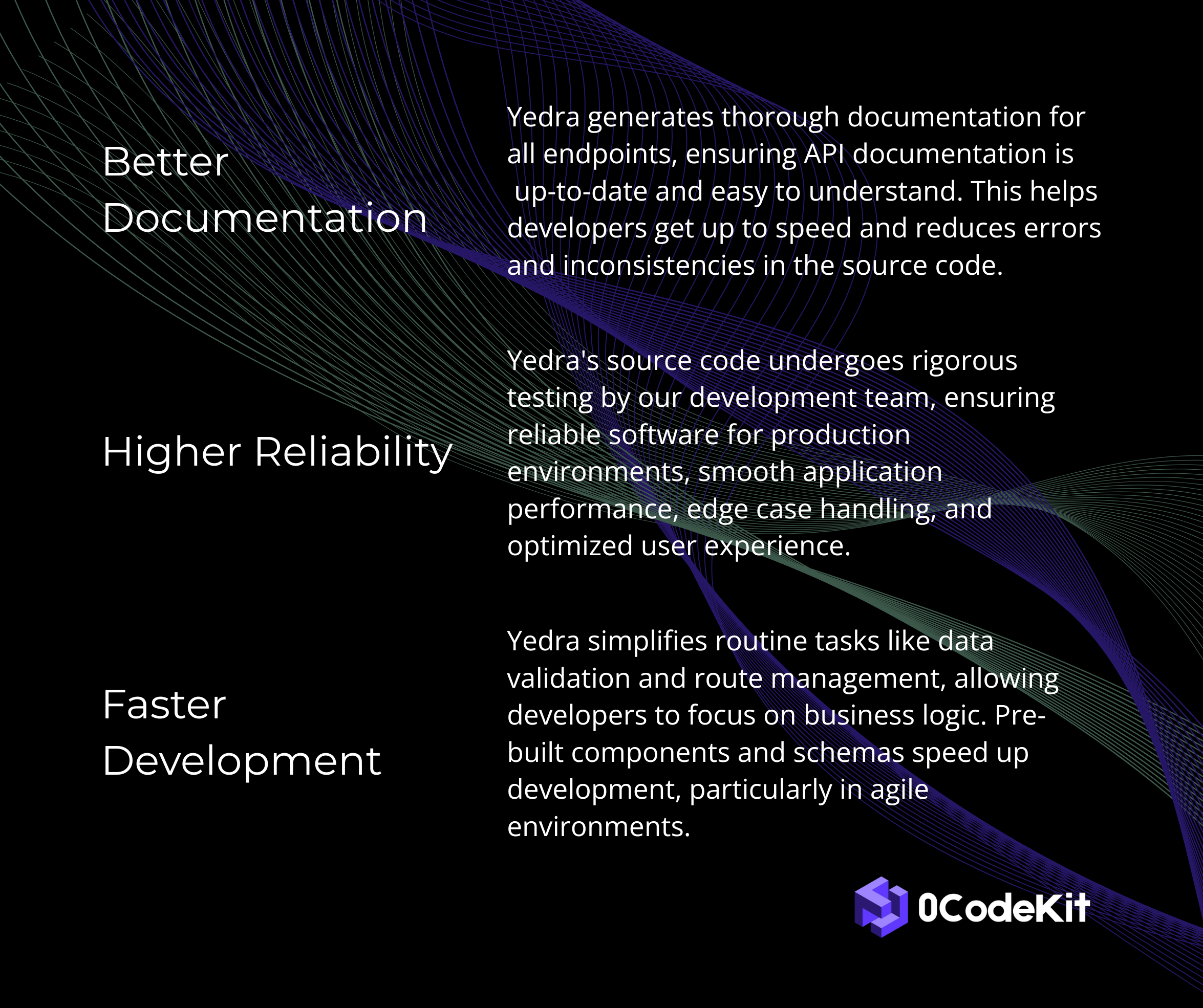Yedra


Yedra is a next-generation web framework dedicated to TypeScript web development. It allows experienced developers to build web applications faster, optimize reliability, and generate high-quality documentation. This framework needs some programming knowledge, which, of course, makes it an ideal tool for skilled developers.
In computer science, an open-source library refers to a collection of pre-written code that a developer can use as the base of their programs. These libraries facilitate the work of many programmers by offering pre-determined classes, functions, and templates that can later be modified to meet specific requirements or create new functions just by changing the source code.
The main characteristic of open-source libraries is that anyone can use, change, and share them under certain rules called licenses. Some popular licenses are MIT, GPL, and Apache. This means that the code is open for everyone to look at how it works, learn from it, and even improve it.
Yedra is a web development framework for TypeScript, which facilitates simple tasks like data validation and routing. We take other developers' open-source libraries as a base to create our own, integrating features like validity systems from Zod and a route system like Express. Yedra is designed to be simple and easy to use for specific tasks. However, it doesn't allow custom middleware or handle data formats other than JSON.
While performing the infrastructure migration, we realized that there was a need to improve the documentation of our endpoints. Consequently, Yedra was created to solve this problem by building a well-documented system with automatic data validation and better error messages. It not only improves our internal systems, but it also shows users our dedication to innovative and qualitative development.
